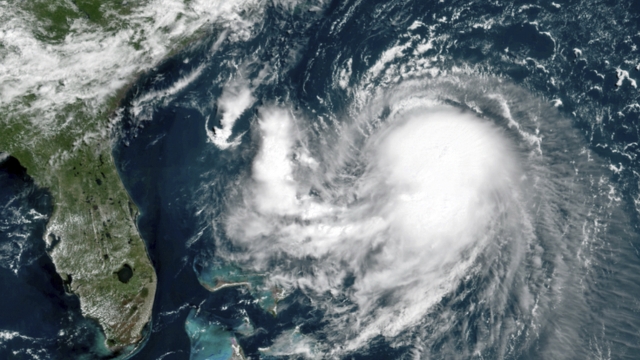Since the 1970s, hurricane wind strength has been measured using the Saffir-Simpson scale, with categories from 1 to the most intense, 5, packing winds 157 mph or higher.
Now with storms that scientists say are becoming supercharged by climate change, two researchers suggest it may be time to put the worst monster hurricanes into a new "Category 6."
In a new paper published in the Proceedings of the National Academy of Sciences, researchers Michael Wehner and James Kossin propose a Category 6 storm would start at winds 193 mph and stronger.
Wehner, a senior scientist at the Lawrence Berkeley National Laboratory, and Kossin, a science adviser at the First Street Foundation, studied 197 hurricanes between 1980 and 2021. Using the hypothetical Category 6 standard, five storms would have qualified, all of them in just the last nine years of the recorded data.
"The most intense one was Hurricane Patricia that had peak wind speeds of 214 miles an hour, which is almost hard to comprehend. You know, that's faster than a racing car," Wehner said.
SEE MORE: Hurricane Ian 1 year later: Fort Myers tries to come back to life
Weather and climate experts debate whether a new category is needed, and say the danger of a hurricane isn't just wind speed alone. The Saffir-Simpson scale, for example, doesn't measure the storm surge and flooding that kill far more people.
"The bottom line is this: Focus on the impacts," said Dr. Marshall Shepherd, director of the University of Georgia Atmospheric Sciences Program. "Hurricane Harvey had most of its rain damage as a tropical storm. Hurricane Sandy was never anything stronger than a Category 1 storm, but we know what it did to the mid-Atlantic and Northeast."
And climate researchers say no matter the category, these impacts will keep coming, as long as the planet keeps warming.
"The DNA of climate change is in today's tropical cyclones, including hurricanes and typhoons," Shepherd said. "What we need to do now is focus less on thinking about new categories and more about adaptation and resiliency to this new generation of storms."
Trending stories at Scrippsnews.com




